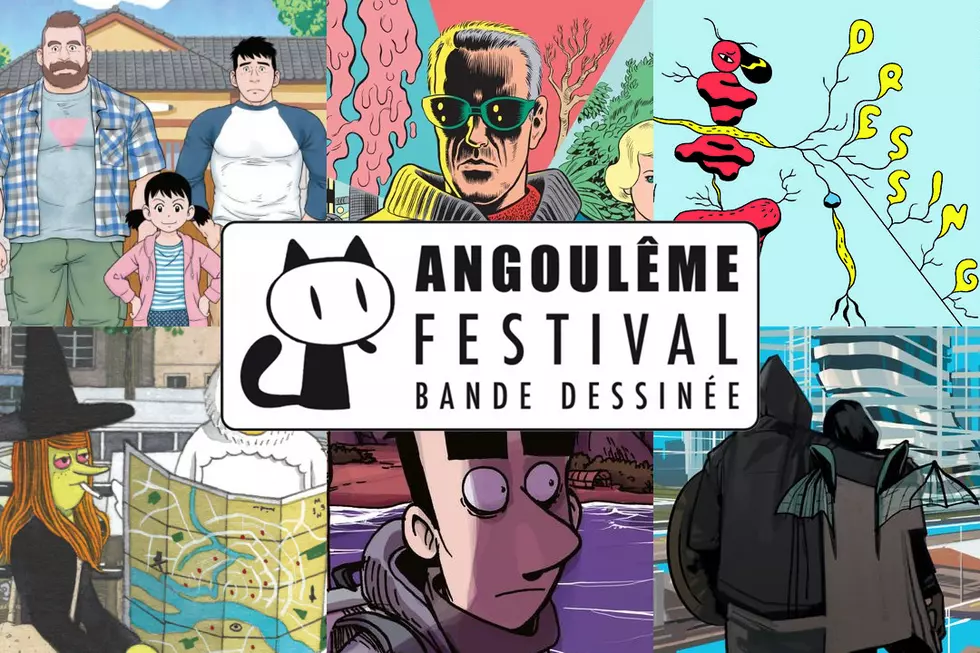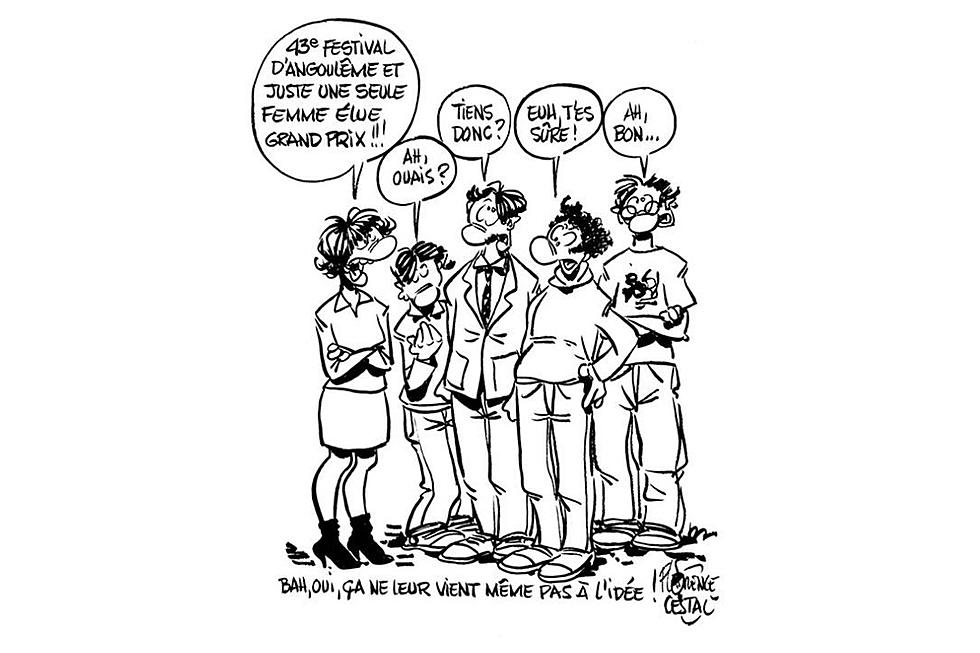
Angouleme Festival Faces Criticism Over Fake Awards
The Angoulême International Comics Festival, once one of the most respected comic convention in the world, faces criticism for issuing a series of fake awards at its 2016 ceremony this past weekend. The festival, which dates back to 1974, already came under fire earlier in the year when the longlist for the Grand Prix de la ville d'Angoulême lifetime achievement award contained zero women in its thirty person longlist.
Angoulême’s response to the earlier criticism was to do away with the longlist and open up voting to any creator that voters thought deserving of the award, but the presentation ceremony brought fresh controversy. Apparently in an attempt at humour, the festival announced a list of winners, and then in a scene straight from a bad high school comedy, declared it was all a prank, and announced the “real” winners.
Comedian Richard Gaitet, who hosted the event, rattled off a list of winners in quick succession, including Fiona Staples and Brian K. Vaughn’s Saga which “won” Best Series, and Olivier Schrauwen’s Arsène Schrauwen for the coveted Fauve d’Or. After listing the supposed winners, Gaitet was joined onstage by two women who reportedly remarked, “Bravo Richard, for that joke about the false fauves [awards] and for the size of the Grand Prix. We laughed a lot, but now he must go.” They went on to issue the real awards.
Reports from the ceremony indicate that the winners of the “Faux Fauves” were visibly crushed, with one “winner” leaving the auditorium in tears upon learning of Gaitet’s cruel joke.
Pol Scorteccia, publisher of Saga’s french edition, had already relayed the news to Staples and Vaughn before having to backtrack and explain what happened, and the Twitter hashtag #FauxFauves has exploded with criticism over the stunt.
While the online reaction has been overwhelmingly negative, Angoulême’s official response to the Faux Fauves is surprisingly defensive, claiming they were done in answer to criticism over “the subject of boredom [that previous ceremonies] have inspired in their spectators.” The statement goes on to say (translated from the original French): “It is regrettable that the humorous register of this sequence has not been shared or appreciated by all, and the Festival organization is ready to submit written regrets to those comic writers who may have felt offended by this sequence.”
The festival’s executive director, Franck Bondoux, blamed Twitter for the negtive response, claiming that all great award shows have jokes, and suggesting the “dictatorship of the tweet” created more outrage than was merited. Richard Gaitet published a much more sincere apology, acknowledging the legitimate criticism over the absence of women nominated for the Grand Prix, and taking responsibility for the pain caused by the Faux Fauves.
After being held in such high esteem by the comics community for over forty years, Angoulême has its work cut out for it next year to earn back all the goodwill it lost this past month. With fans and creators alike still in shock over this cruel prank, only time will tell if people will even want to attend next year’s event after two huge controversies so close together, handled so poorly.
The actual prize-winners at this year's festival were:
- Best Album: Ici, by Richard McGuire
- Popular Vote: Cher Pays de Notre Enfance, by Benoît Collombat and Étienne Davodeau
- Special Jury Prize: Carnet de Santé Foireuse, by Polza
- Best Series: Ms. Marvel, by Adrian Alphona and G. Willow Wilson
- Emerging Talent: Une Étoile Tranquille: Portrait Sentimental de Primo Levi, by Pietro Scarnera
- Young Readers: Le Grand Méchant Renard, by Benjamin Renner
- Best Reprint: Vater und Sohn – Pére et Fils, by Erich Ohser and E.O. Plauen
- Mystery/Suspense Comic: Tungsténe, by Marcello Quintanilha
- Alternative Comic: Laurence 666
- Lifetime Achievement: Hermann
More From ComicsAlliance









